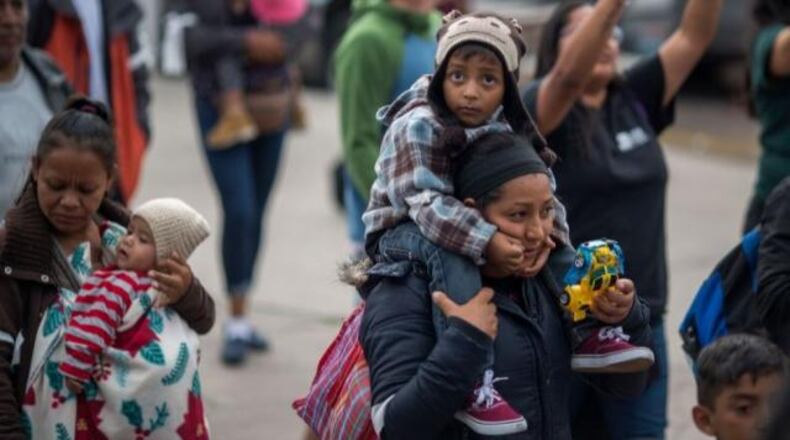The Trump administration was warned explicitly and repeatedly, by its own experts, that separating refugee parents from children would do serious long-term damage to those children.
Commander Jonathan White, a career Health and Human Services official, told Congress this week what he and others had told the administration months earlier:
"There is no question that separation of children from parents entails significant potential for traumatic psychological injury to the child."
The administration did it anyway, out of sheer meanness and cruelty.
But wait, it gets worse. According to testimony from White and several other top officials, the Trump administration implemented its policy of forced separation with no prior planning or preparation. The officials charged with carrying out the program learned about it the same way everybody else did --when Attorney General Jeff Sessions announced the policy on April 6, effective immediately. They were given no warning, and no time to prepare for its consequences.
Some of those consequences are now obvious. As of last Friday, 2,551 children aged 5-17 had been forcibly separated from their parents by the U.S. government, some for months at a time. And because the government took no care or preparation in handling those families, it often had no record of where in the bureaucratic jungle the children and their parents might be. As a result, the administration has missed a number of court-ordered deadlines to reunite those families.
According to data submitted to federal court on Friday, here’s where things stand:
-- 1,442 children of the 2,551 have been reunited thanks to a court order;
-- 431 children remain here in U.S. custody, unable to be reunited because their parents were deported to their home countries without them. That’s remarkable. In addition, finding those parents and returning their children to them will be difficult and in some cases might be impossible, meaning that we will have effectively rendered them orphans and wards of the U.S. government.
-- In 94 cases, the government does not know where or even who the parents are.
-- In 120 cases, parents have signed papers agreeing to be deported while also forfeiting the right to be reunited with their children, allowing them to be placed elsewhere.
When I saw that last category, I admit I was highly dubious. Why would refugee parents voluntarily sign away rights to be reunited with their own children? It sounded like an excuse concocted by the government to ease its own culpability. But as White explained to the Senate Judiciary Committee, what appears to be an act of parental abandonment is in fact a heartbreaking expression of parental love.
“Many parents have made this journey here to deliver their children because that is the desperate last act of a parent trying to take a child out of some of the most dangerous places to raise a child in the world,” White said, citing astronomically high rates of child murder in places such as Guatemala and Honduras. “Although it might be unfathomable to understand why someone, when presented with the opportunity to be reunified with their child, might say no, it is unfathomable until you’ve walked in those parents’ shoes.”
Think about that. The situation that these families are fleeing is so dangerous that parents are voluntarily agreeing to go home without their children, believing that it is better for those children to live as de facto orphans in an American detention center than to be dead back home. These are the people whom the Trump administration describes as “child smugglers” and “sinister” threats to our country, whom it accuses of falsely claiming refugee status or even of being criminals using children as a ploy.
Yes, such people do exist, and they can and should be identified and jailed. However, according to the administration’s own numbers, they are exceedingly few in number. The Trump administration is trying to justify its own harsh, inhumane treatment of the overwhelming majority by citing the threat posed by a mere handful, and that excuse for its cruelty does not withstand even the slightest inspection.
About the Author
The Latest
Featured



